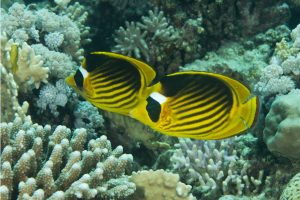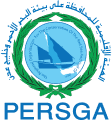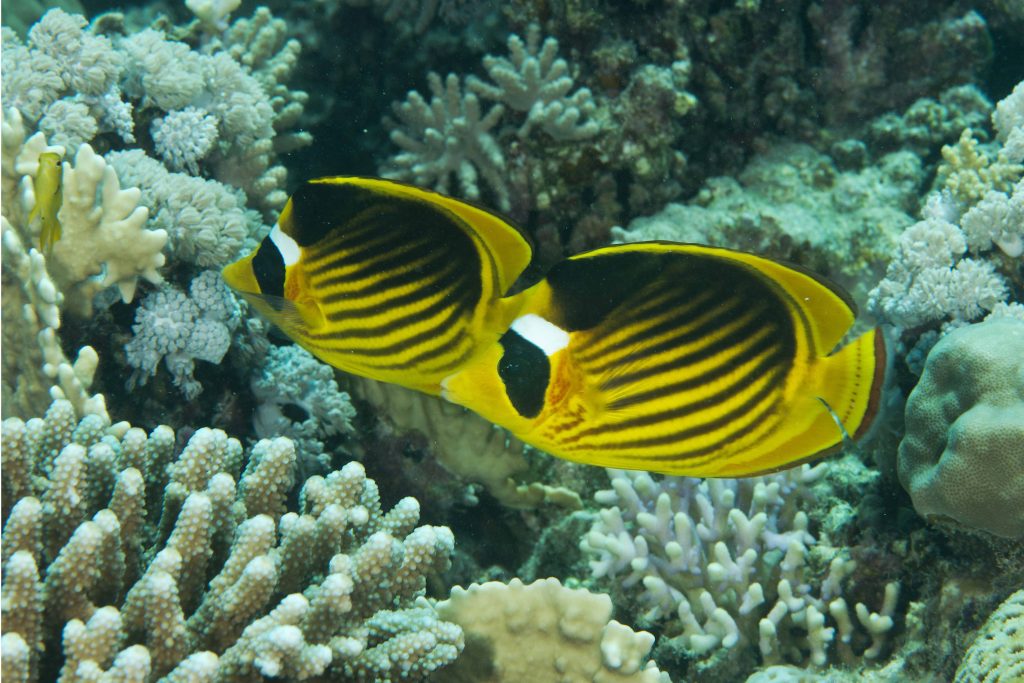PERSGA and the World Bank jointly organized a one day-Workshop on the Midterm Review “MtR” of the Red Sea and Gulf of Aden Strategic Ecosystem Management Project (SEM). The Workshop took place on Monday 21st March 2016 in Cairo, Egypt. The SEM Project is a full-sized GEF Grant has started on November 4th, 2013 and its official closing date is January 31st, 2018. The Workshop is the last stage of a process initiated with the preparation of a MtR background Report by an External International Consultant recruited by PERSGA, who, between December 20th 2015 and February 11th 2016, reviewed available documentation, prepared a questionnaire sent to key stakeholders and analyzed their answers, and visited Sudan and Saudi Arabia to meet experts and officials involved in the implementation of the Project.
The objective of the Workshop was to present and discuss the progress and achievements of the SEM Project, assess weaknesses, identify constraints and challenges, and formulate recommendations. The workshop was hosted by Egyptian Environmental Affairs Agency “EEAA”, of the Ministry of Environment of Egypt. It was co-chaired by HE. Eng. Ahmad Abu el Souod, EEAA Chief Executive Officer; HE. Prof. Ziad Abu Ghararah, PERSGA Secretary General; and by Dr. Africa Eshogba Olojoba, Lead Environmental Specialist, Project Task Team Leader, World Bank. It was attended by 25 participants, including representatives of the national delegations of Djibouti, Egypt, Jordan, Saudi Arabia and Sudan.
In their opening remarks, the three chairmen highlighted the importance and the relevance of this regional project, whose general objective is to improve management of marine resources in the Red Sea and Gulf of Aden in selected Marine Protected Areas (MPAs) building on resource protection and incentive systems for communities and the harmonization of the knowledge base of marine resources among the Red Sea and Gulf of Aden member countries. The project Manager and Components coordinators presented an overview of the Project and its main achievements. The international Consultant presented his background report. The workshop witnessed interactive discussion between the participants. National delegations valued the achievements of the Project in their countries and presented some ideas that they believe could enhance their countries’ benefits from the Project. This included some specific equipment requested by Sudan, increasing the value of the monitoring contract requested by Jordan and moving forward rapidly in implementation in Egypt.
At the End of the Workshop a set of recommendations have been made, these include:
- The Results Framework and Indicators needs to be revised, by taking into account the following changes:
- the present formulation of the PDO is fine and there is no need to revise it.
- As a matter of principle, all the core indicators, both at the level of the Global environmental Objective and the Intermediate results – should be left unchanged. However the following indicators need to be more precisely interpreted,
- the first indicator should be changed into “marine areas brought under biodiversity management (ha)”
- For the Global PDO Indicators, the notion of “beneficiaries” is all the persons – men and women – who benefit from all activities of all the Project components, i.e., those aimed both at improving local livelihoods and building technical and managerial capacities.
- The total number of indicators, especially the intermediate ones is to be reduced and the exact meaning of key indicators will be clarified.
- A revised Results Framework and Indicators will be proposed by the PCU, with specific, measurable, assignable, realistic, and time-related “SMART Indicators”.
- Community-based sub-projects. All the technical, financial and administrative conditions aimed at developing and implementing community-based sub-projects will be rapidly and efficiently put in place in the next few months. These community-based initiatives will set the ground for implementation of sustainable marine co-managed plans. These projects will particularly:
- Management plans for Marine Protected Areas (MPAs). The process of formulating, updating and implementing Marine Management Plans for MPAs will remain a key priority until completion, and work plans will identify concrete actions to be implemented before the end of 2016. More particularly, explicit support will be provided to:
- Implementation of the Management plan in the Dungonab Bay – Mukkawar Island Marine National Park (Sudan), whose complete draft has recently been formulated, at the end of a detailed, multi-disciplinary work.
- The Wadi el Jemal-Hamata MP, Egypt, for the identification and implementation of different activities – related to monitoring, zoning plan of community-based initiatives, equipment and training for rangers.
- The Aqaba Marine Park, in Jordan, in order to explore deep sea fishing to relief pressure from the Park and adjacent coastal are, update regulations, provide equipment and technical support for monitoring and MPA management activities.
- The Marine Protected Area at Mosai and Maskali Islands, Djibouti for monitoring and socioeconomic benefits assessments.
- Communication. Focus will continue to be placed on activities related to improved forms of communication, knowledge sharing and dissemination of best practices and lessons learned between different regional and national stakeholders, through more effective and adequate communication channels. More particularly:
- The existing Web site will continue to be developed in a dynamic and user-friendly manner, to be conceived as an active repository for any knowledge products developed by the project – such as reports, manuals, guidelines, workshop proceedings, papers on best practices
- Publication and hard-copy dissemination of short Technical Notes, Research Summaries, Practice Papers and Policy Briefs in Arabic, English and French will be enhanced in order to comprehensively present key findings of studies and assessments conducted by the Project to a large audience made up of national and international policy-makers, government bodies, research institutions, development workers, and community groups, at national, regional and international levels.
- Monitoring and Evaluation. The inclusive and integrated M&E system, which has recently been developed by the PCU, will be effectively used in order to plan activities, regularly collect and analyze information, and assess how activities are being implemented (by comparing the results to expected performance).
Work plan. All these recommendations will be translated into a detailed and precise Work Plans, to cover the entire period from April 2016 until the closing of the Project (31st January 2018). This plan, whose initial drafts were presented during the Workshop for each component, will be further developed to provide detailed information about the conditions and modalities concerning the implementation of the different activities.
- In conclusion the Workshop was an important event that contributed to providing a more clear strategic insight of Project, with subsequent required effective disbursement of available resources. With the recommended proposed measures taken efficiently the key outcomes and objectives of the Project will be achieved before completion. Capacities of PERSGA member countries in subject matters will be strengthened and, on the basis of lessons earned, the conditions to scale up and replicate the approach to other countries will be defined realising the GEF Projects Global Benefits.
More to find

National Workshop on Environmental Monitoring and Communicating with Stakeholders Applying …

Consultation Mission in Dungunab and Mukkawar Island National Park Meeting …

Follow up of Monitoring Activities and Procurement of Monitoring Equipment



